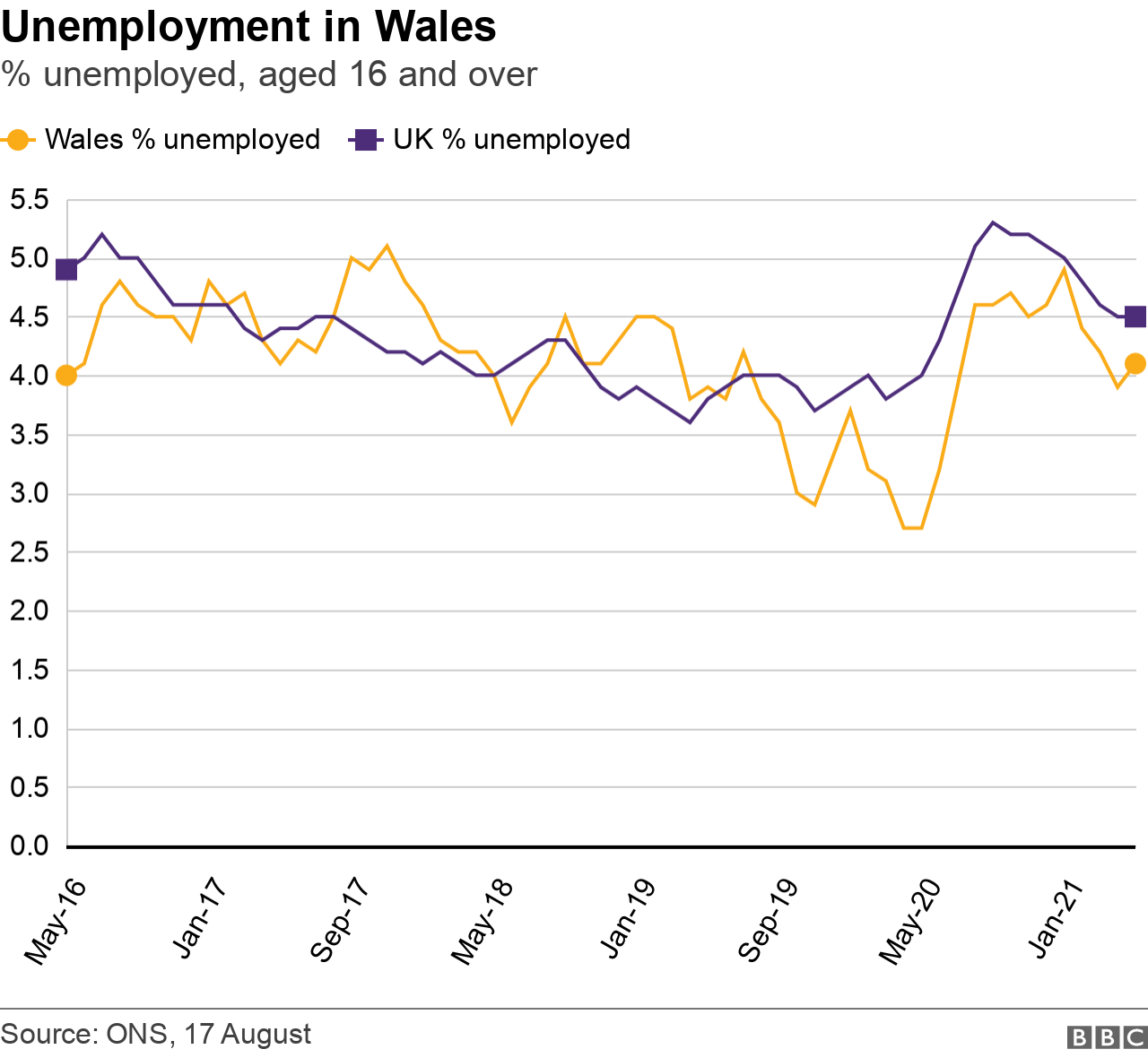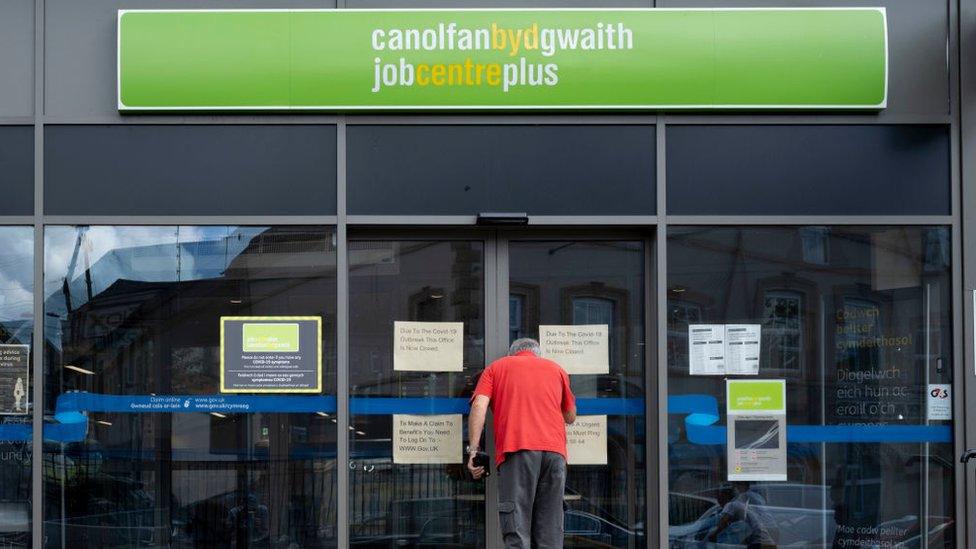Staff shortages remain despite more out of work in Wales
- Published

Prior to the pandemic, the hospitality industry employed 3.2m people and was the UK's third largest private sector employer
Serious staff shortages remain in the food and drink industry despite 21,000 more people in Wales being out of work compared with a year ago.
The Office for National Statistics (ONS) said there were 62,000 unemployed people at the end of June, down 6,000 on the previous three months.
There are also 68,000 furloughed jobs and it is not known if employees will have work to return to when the scheme finishes at the end of September.
Lorry firms are also short of staff.
The pandemic is still heavily affecting jobs and the picture is complicated.
A shortage of HGV drivers is being blamed for shortages in supermarkets and the building trade, as well as driving up prices.
For instance, timber prices have doubled in the past year.
Employers in the hospitality sector are having to compete for staff, driving up wages.
For years it has been an industry dominated by low pay and has struggled to be seen as an attractive industry with a strong career path and opportunities to develop.
As a result, employers have relied on staff from EU countries where the industry is rated more highly, but many of those employees have returned to work in the EU since Brexit.


Tuesday's figures from the ONS show 4.1% of over-16 year-olds in Wales are unemployed, a lower proportion than the UK as a whole which has an unemployment rate of 4.7% .
Only the east and south west of England and Northern Ireland have a lower unemployment rate.
Unemployment figures count people over 16 who are not working and are available for work. It does not include adults who are not working and not available to work because they may be sick, caring for someone or in full-time education.
Because of this, the figures for employment and unemployment do not neatly mirror each other.

The unemployment rate in Wales has fallen to 4.1%
Statisticians warn that it is dangerous to interpret too much from changes in the jobs market over three months. They prefer to look at changes across a year.
The latest unemployment figures may look promising compared with three months earlier, however, it is the longer-term pattern of employment and unemployment in Wales that is more significant.
Once furlough has finally ended in the autumn we will have a clearer picture of the jobs market in Wales, but it will be very hard to untangle causes - what is a result of the pandemic, what has changed because of Brexit and what are long-term weaknesses in the Welsh economy.
Ben Francis, policy chairman at the Federation of Small Businesses, said the three-month fall in unemployment was "very heartening".
He added: "This data also shows that small firms need to recruit and retain staff in order to build their own economic recovery - which means that it is vital that businesses are able to access the people that they need to rebuild."
- Published20 July 2021
